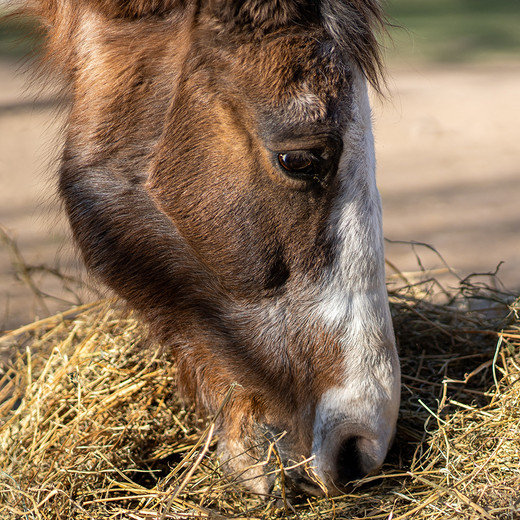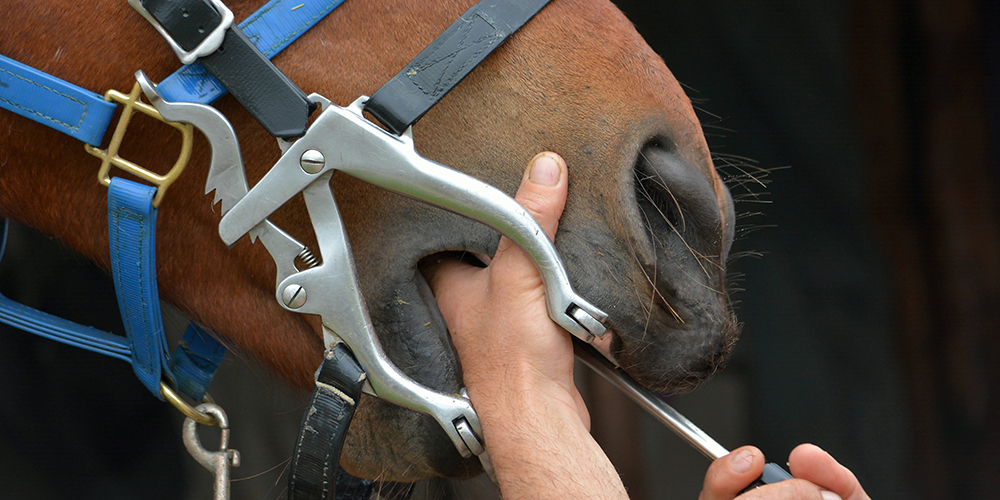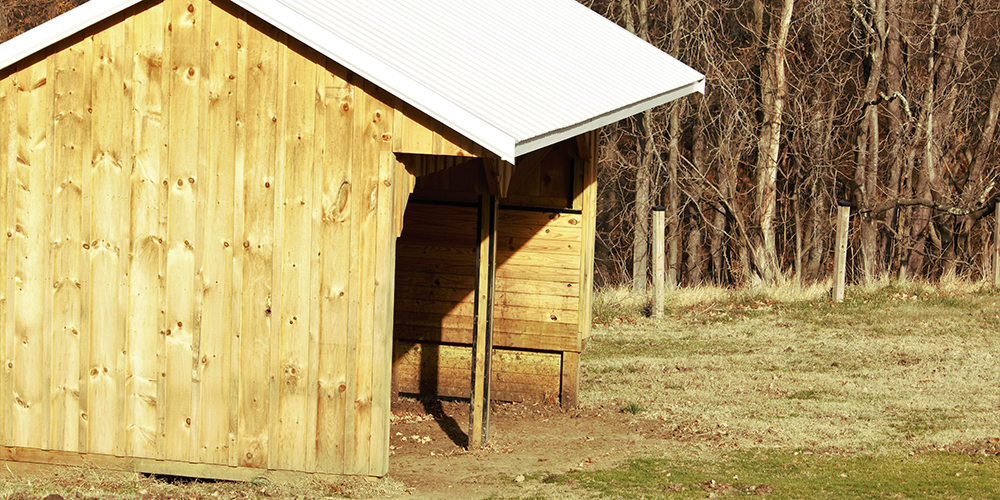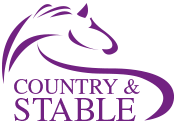Tips For Looking After Older Horses
Nov 3rd 2023

AGEING! Whether we like it or not, it's a fact of life, and it happens to us all. But, thanks to improved veterinary care and an abundance of helpful information at our fingertips, our horses are living longer than their predecessors. More horses are living into their 30s, and with one year of a horse's life equating to approximately three human years, that's a ripe old age of 90! It is essential to manage the health of your senior horse all year, but even more so when it is wintertime. But how can you look after your horse in their golden years? Below, we have some handy tips for looking after the older horse, allowing you to keep an eye on and ensure they're as happy as possible.
As always, should you have any concerns about your horse's health and wellbeing, consult your vet in the first instance for any help and advice.
Diet
Older horses tend to have trouble with their weight – either keeping it on or keeping it off. They may get bigger in the summer, from eating the lush grass, and shed the weight in winter. Older horses need more protein and fat than their younger friends. Providing a good source of easily digestible fibre is also a good idea as the gut will be less efficient in breaking down harder material.
There are plenty of commercial feeds out there that are specifically designed for the older horse. If you are under any uncertainty, always consult an equine nutritionist to guide you towards the best feeding regime.
- Good Quality Hay: Try to avoid more mature, stemmy hay that will be hard for your older horse to chew, especially if they have dental problems.
- Oil:This is an excellent addition to your horse’s feed as oils are high in calories and easily digested. Remember to add them gradually as you would with any change in diet.
- Pellets: Some pellets and extruded feeds are formulated for the older horse. They are more likely to have higher levels of fat and protein and are easier to digest than some mixes.
- Vitamins and Minerals: Supplying the recommended level of vitamins and minerals will also help ensure your horse receives the necessary trace elements.
- Poor Teeth: If your horse has poor quality teeth or very few, there is always the option of adding a lot of liquid to their food for them to lap it up. There is also the option of sugar beet pulp or mash feeds, which will add easily digestible calories.
Dental Care
A horse's teeth play an essential part in the digestive process, so any problems limit their ability to chew and feed properly. It's important to note that a horse's teeth are not the same as ours; human teeth stop erupting when fully emerged from the gum, whereas a horse’s will keep erupting and are not anchored to the gums. The teeth are naturally worn down and, in time, become loose and quite uncomfortable. This means that a senior horse will require much closer management when it comes to their teeth. They should have their teeth checked regularly by an equine dentist – how often will be dictated by the dental technician, usually every 6 - 12 months.

Signs Of Dental Issues in Horses
Are they dropping a lot of food on the floor?
This is quite common in older horses when they have a broken tooth or if sharp points have developed, making it painful to chew. Observing how your horse eats will give you a good indication as to if there’s something wrong.
Does your horse have bad breath?
This could be a sign that food is collecting in the gaps between the teeth and becoming impacted. Without treatment, this could then lead to infection.
Have you checked their droppings?
Check manure for large amounts of grain or unchewed hay. If this is present, it could indicate poor digestion, which can occur when they can’t chew properly.
If your horse has lost most or all their teeth, fear not, as adjustments can be made to their feed to accommodate this, such as using a specially formulated senior horse feed. As every horse is different, consult your vet and/or nutritionist for the best course of action and recommendations.
Keep Active
You may not be able to ride your horse how you used to, as aerobic performance tends to decrease after the age of 20. However, if you can still ride your horse, it is vital to keep them as active as possible. Daily turnout should be the minimum of your horse's requirements for good circulation, good gut health and general wellbeing and quality of life.
Keeping Things Varied
Vary your horse's work, and do not rely on just riding. Try doing some in-hand work over poles or making them move sideways. Not only will this help to keep them supple, but it also keeps their brains active. If your horse is a retired competition horse, they may miss being busy. A regular and varied routine should help with boredom and keep them enthusiastic.
Regular Work
Keeping your horse working regularly, as opposed to just weekends, will make it easier to maintain regular movement. Make sure you allow time to warm up and cool down; this will also help to prolong their working life.
Check The Fit of Your Saddle
When your horse ages, they will lose their muscle, meaning your saddle will sit lower. It is vital that you have your saddle regularly checked by a saddle fitter and readjusted accordingly.
Shelter
Whether you keep your horse in a stable or let them live in the open, your older horse may benefit from some shelter from the elements. The older horse seems to need more protection from the cold compared to the younger horse, especially if they are wet.
Field shelter
Access to a field shelter will give your horse instant cover from the hot sun, strong winds or harsh rain and can make a noticeable difference to their general wellbeing.

Winter coat
You might not clip your horse in winter if they are not doing as much work. However, you may wish to still have a good winter rug for your horse. Depending on your horse, this may only be needed some of the time, but it is good to have a backup just in case the weather changes. A good rug can stop any chills and gives excellent protection. It will help keep them dry, which means your horse will use less energy to stay warm.
Arthritis & Joint Care
If your horse is over the age of 20, they will be more prone to arthritis, which is a highly common ailment. It is crucial to manage joint care correctly, so your horse is not in any discomfort.
- Watch Their Weight: Ageing horses are likely to lose their lean body muscle, which is then replaced by fat. If your horse is carrying additional weight, this could be making their joints uncomfortable, especially the knees. Being overweight may also increase the risk of heart problems and laminitis.
- Supplements: Providing a supplement with glucosamine and MSM will help ensure you are supporting joint health.
- Mild Exercise: Regular light exercise may help ease aches. This will keep the joints moving and hopefully avoid any seizing up.
Whether your horse is retired or still in work, having a horse in their golden years can be rewarding and fulfilling. By following these tips, looking after the older horse can be much easier. Remember, consulting with your veterinarian and other equine professionals is essential to tailor a care plan that suits your horse's unique needs and helps them thrive in their later years.




